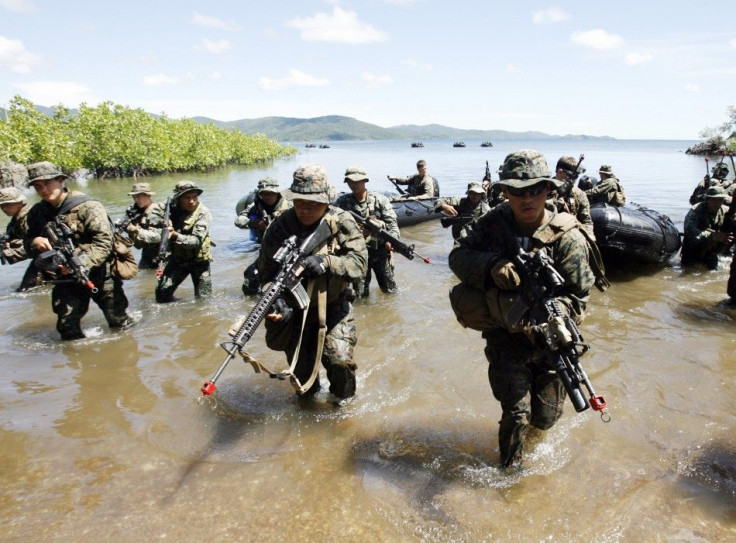US Seeks To Establish Base In Philippines As China-Taiwan Conflict Heats Up

KEY POINTS
- Defense Sec. Lloyd Austin III met with Philippine President Marcos to finalize the expanded bases access deal
- The U.S. hopes to create a chain of allied countries in the region to deter Chinese military activities
- A senior Philippine official said the U.S. seeks access to "four or five" more Philippine military bases
After more than three decades since their military bases were closed down, the U.S. military presence in the Philippines would be further expanded after a new bases access deal was approved to keep China's threat to Taiwan in check.
The Philippines has granted the U.S. access to four more military bases, after Defense Sec. Lloyd Austin III arrived in the Philippine capital of Manila and met Philippine President Ferdinand Marcos Jr. to finalize the deal under the Enhanced Defense Cooperation Agreement (EDCA), BBC News reported.
The U.S. said the deal expanding their access to the military bases with the Philippines would create a chain of countries in the region with an American military presence that would monitor Chinese military activities in the South China Sea and around Taiwan.
In a joint statement, the two countries highlighted the importance of EDCA, a military accord approved in 2014, in making the U.S.-Philippines alliance stronger.
"The EDCA is a key pillar of the U.S.-Philippines alliance, which supports combined training, exercises, and interoperability between our forces. Expansion of the EDCA will make our alliance stronger and more resilient, and will accelerate the modernization of our combined military capabilities," they said, CNN reported.
The four Philippine military bases to which the U.S. has been granted access haven't been identified. But three could be in Luzon, the northern part of the Philippines near Taiwan.
Gregory Poling, an expert on Southeast Asia at Washington's Center for Strategic and International Studies, said providing access to some Philippine military bases in the northern part of Luzon island would help the U.S. deter any Chinese threats against Taiwan.
Poling suggested that the U.S. could deploy shore-based missiles in the area, including the waters south of the self-governing island.
Before the new deal got approved, the U.S. was given access to five Philippine military bases under EDCA: Cesar Basa Air Base, Fort Magsaysay Military Reservation, Lumbia Air Base, Antonio Bautista Air Base, and Mactan-Benito Ebuen Air Base.
Austin's visit came after Vice President Kamala Harris went to the Philippines in November last year to reiterate the U.S.'s "unwavering commitment" to defend the country.
In her meeting with Marcos, Harris said an armed attack against the Philippines in the South China Sea would trigger the 1951 mutual defense treaty between the two countries.
Harris also visited the Philippine island of Palawan, facing the heavily-contested South China Sea, to underscore the importance of freedom of navigation and international rules-based order in the region.
The Philippines and China have been at loggerheads for decades regarding the issue of the South China Sea.
In 2013, the late Philippine President Benigno Aquino III sued China at an international arbitral tribunal in The Hague, accusing China of violating the United Nations Convention on the Law of the Sea (UNCLOS).
Despite China's refusal to participate in the arbitration, The Hague unanimously ruled in favor of the Philippines in 2016, invalidating Beijing's "nine-dash line" claim over the disputed South China Sea and recognized Manila's sovereign rights.

© Copyright IBTimes 2024. All rights reserved.





















